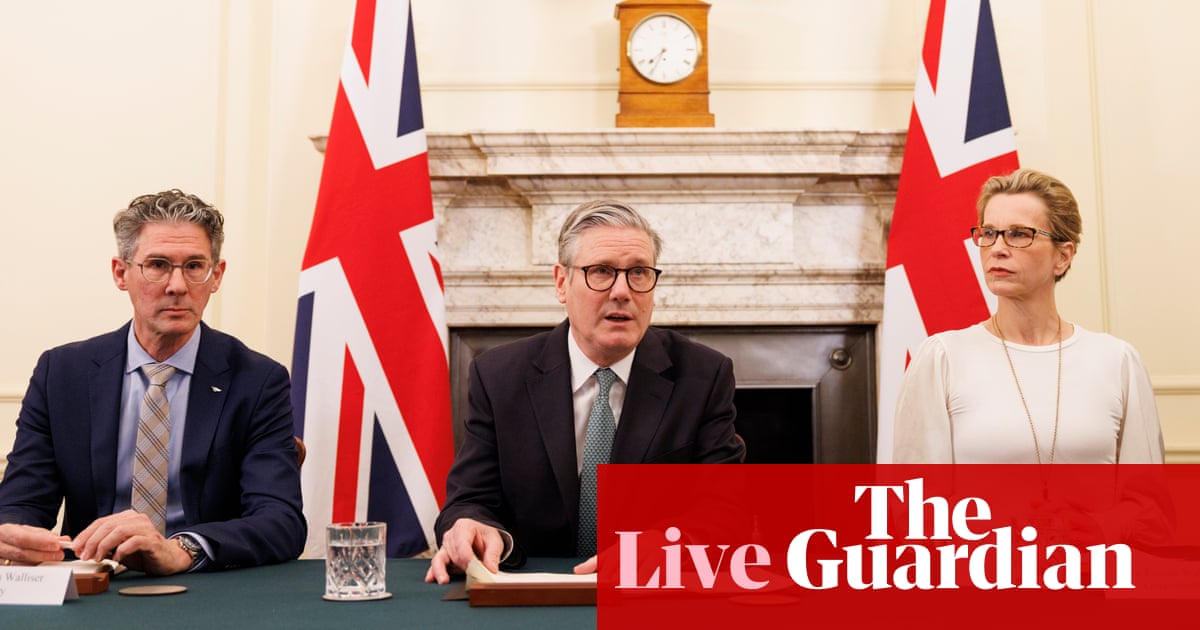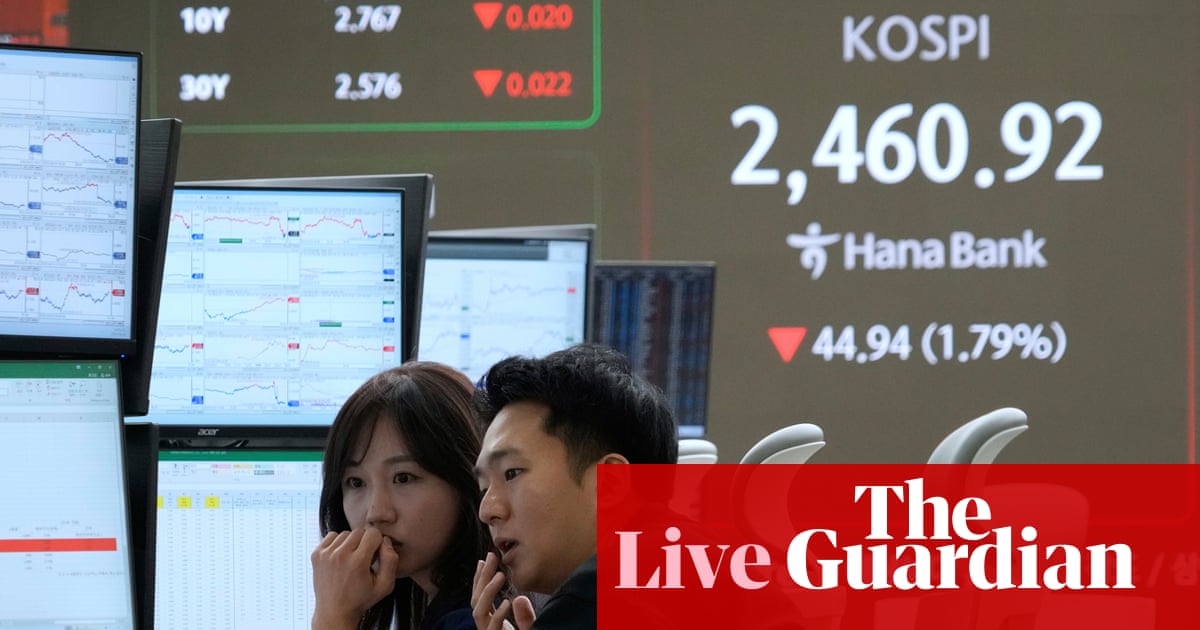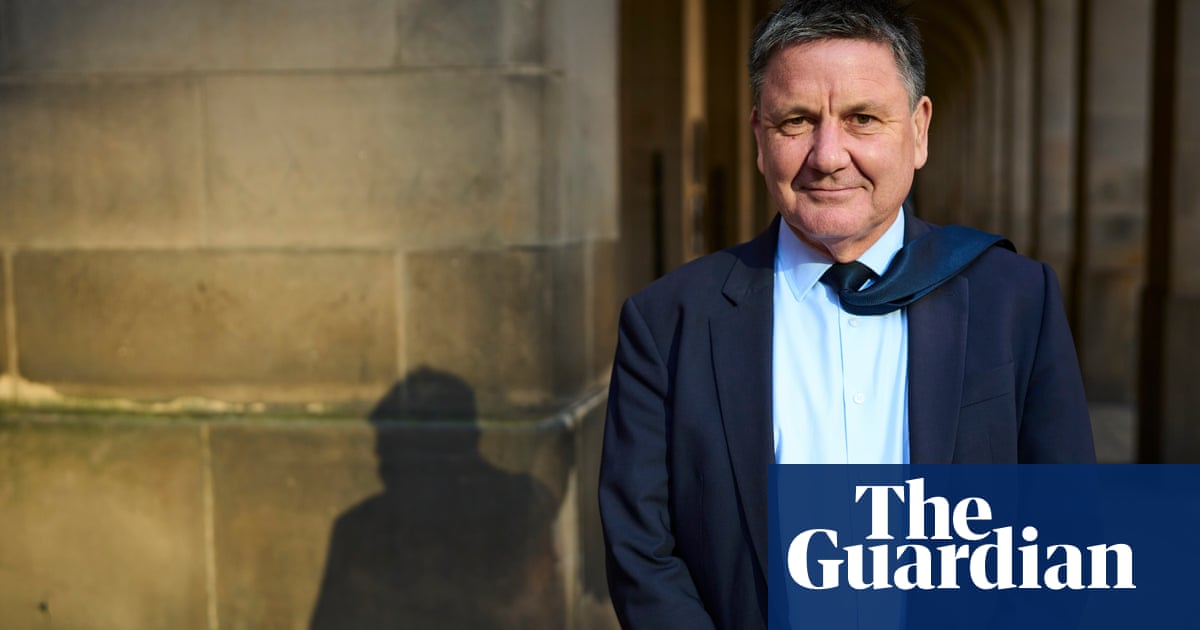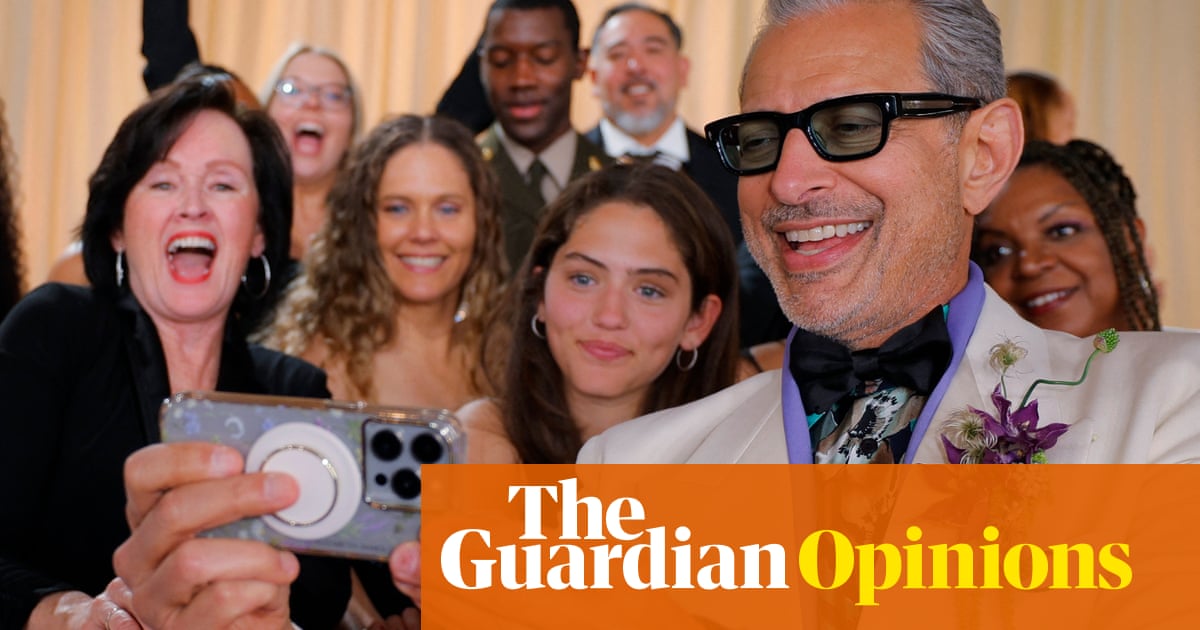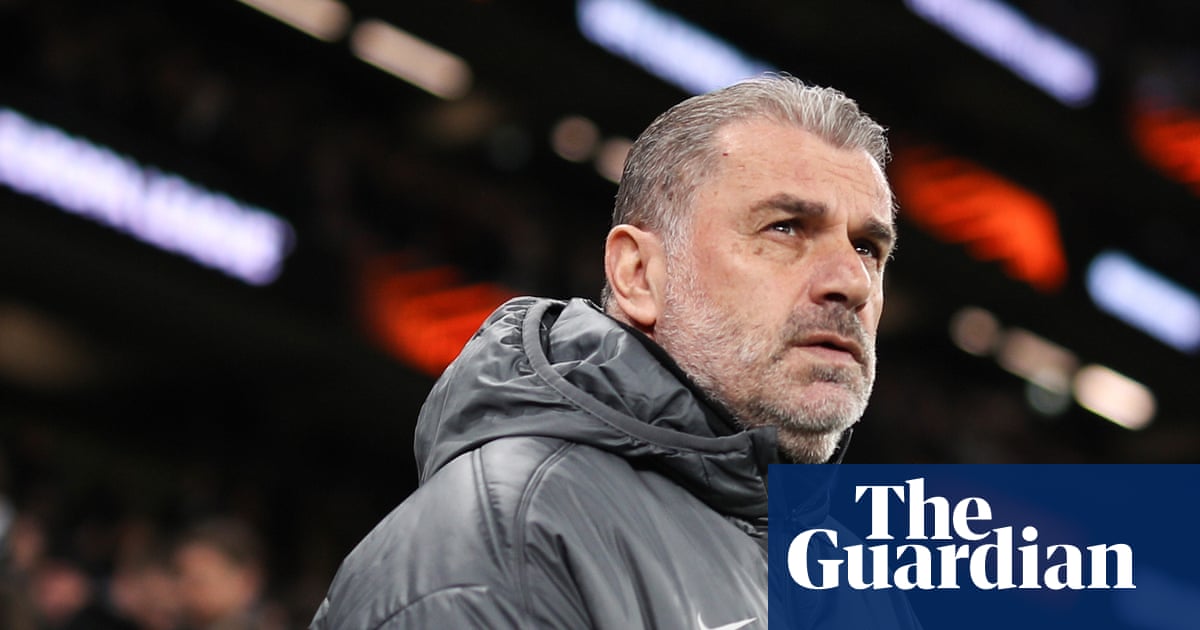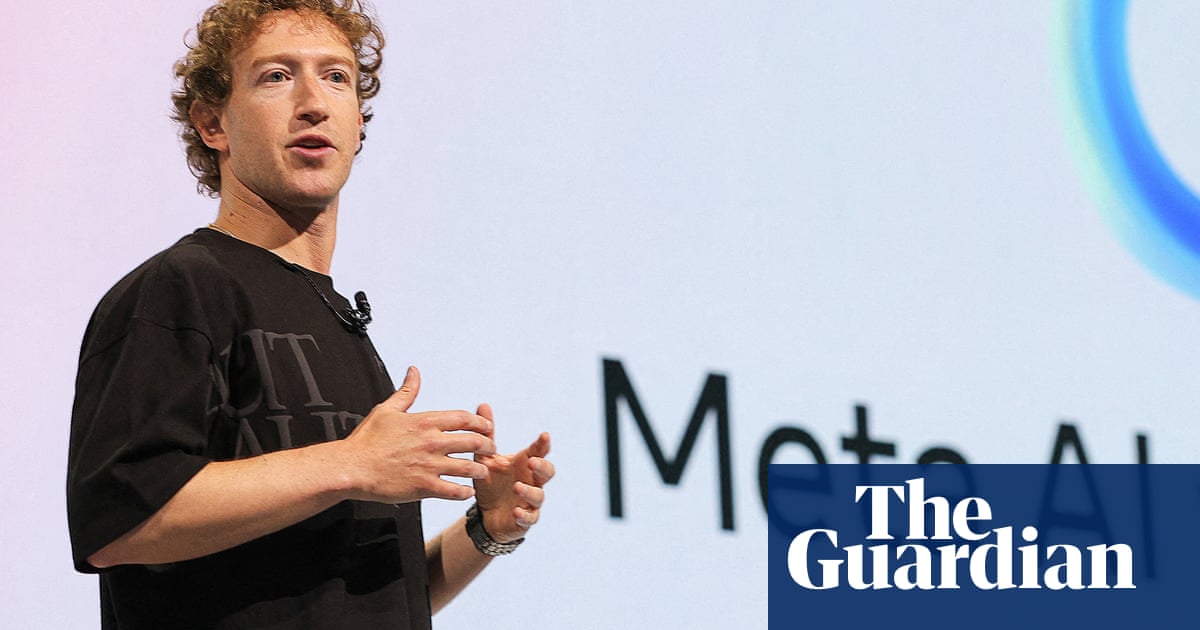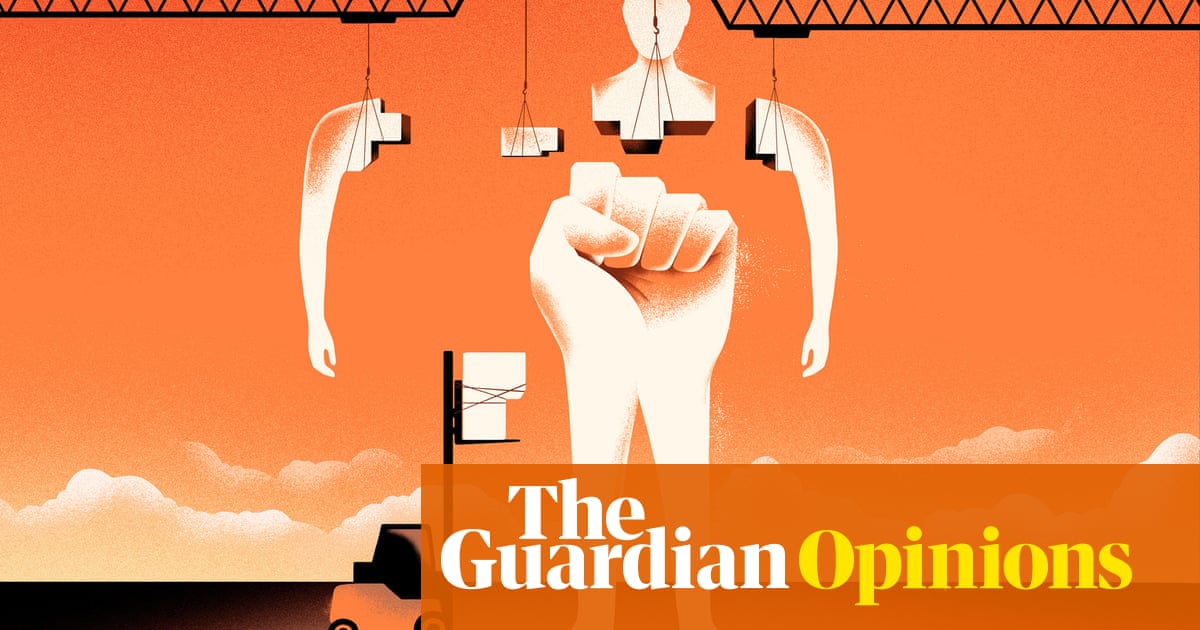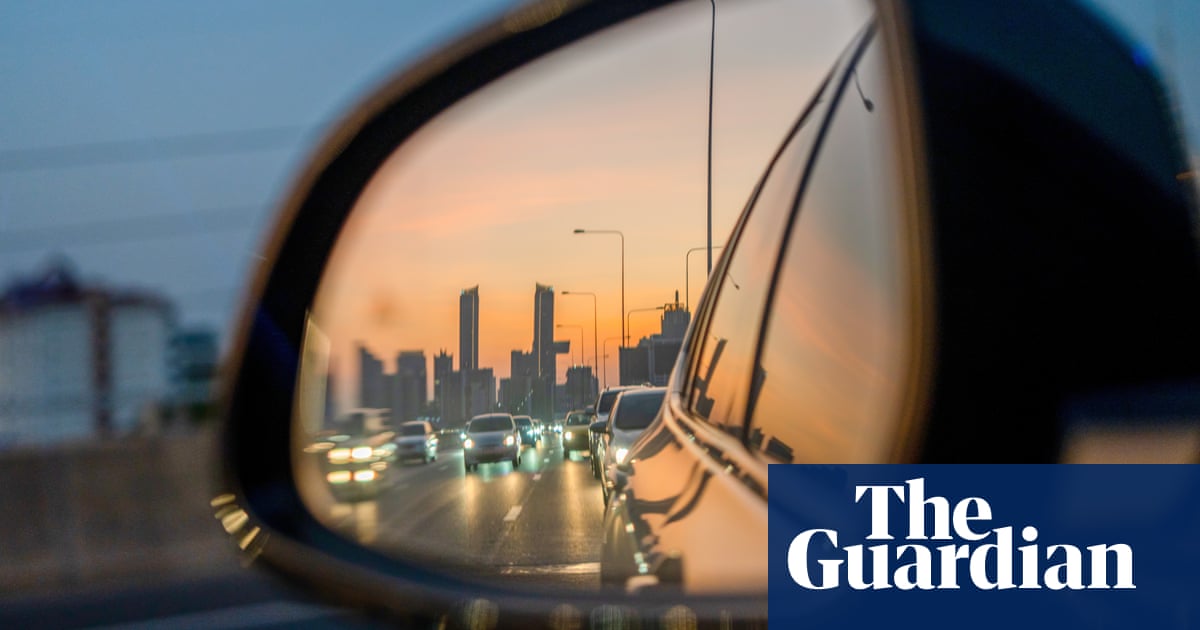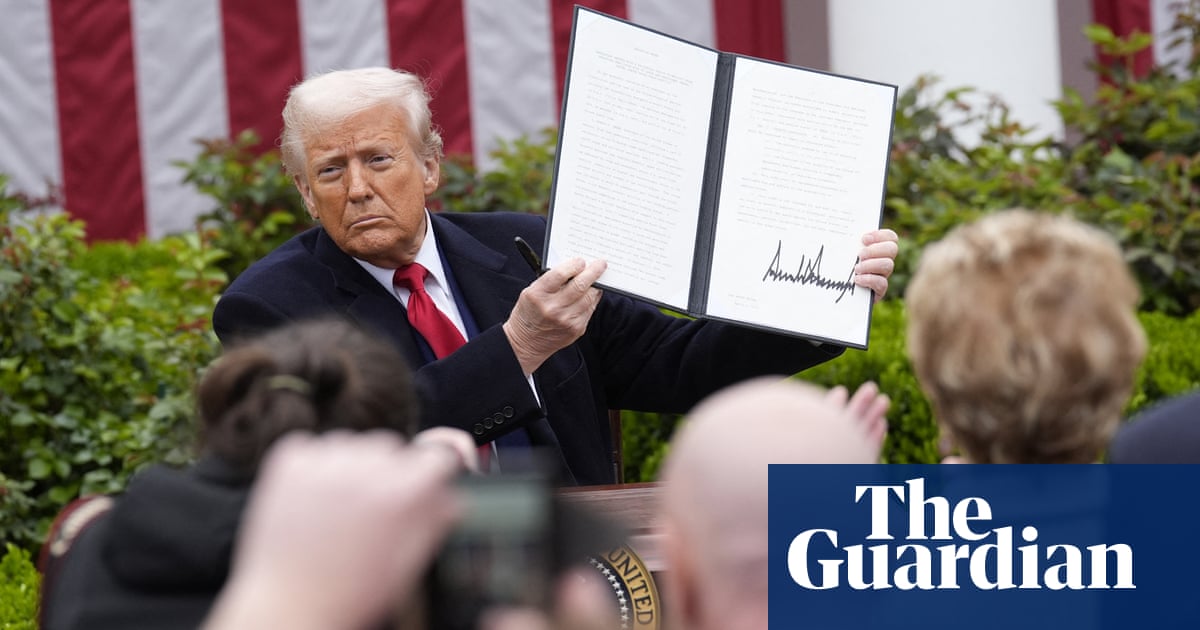Comedian Rob Copland is sipping a pint of Guinness as I arrive at a cosy pub near his south London flat. There’s a fire crackling in the corner, fairy lights twinkling and a little brown puppy called Pancake curled up by his feet, nibbling a carrot.
The peaceful scene couldn’t be further from his comedy, where every performance is an explosion of energy, with Copland dancing, clapping, leaping on to chairs and whipping audiences into hysterics. He once traversed a room upside down via a steel beam, delivering jokes as he went. He must be one of the only standups to regularly sustain onstage injuries, including neck damage from head-banging too hard during his debut show Mainstream Muck (where he created a comedy moshpit), and toe pain from bouncing around the stage.
Copland’s wild energy has been bubbling across London’s comedy scene for nearly 10 years, but last year brought a big breakthrough. He earned the Edinburgh comedy awards’ Victoria Wood prize for the act that best embodies the spirit of the fringe, after his show Gimme (One With Everything) became a word-of-mouth sensation that saw punters lining the street for a seat in the crowd.
Gimme asks big questions about a life well spent, combining Copland’s struggle for comedy success while working as a bakery pot-washer with the story of his great uncle George, who died in the second world war. Its heady mix of physical comedy, existential angst and community spirit made it one of those rare shows that leaves you buzzing for hours.
“Comedians are like DJs, but for mood,” Copland says. “When I have a microphone in my hand, how do I want to make people feel? I want them to feel hopeful, good, optimistic. I want the show to come to life.”
He always dreamed of being a charismatic rock frontman and channels that energy. “The best feeling in the world is discovering a new band, then telling people about it,” he says. “I wanted to create that with this show.”
Mirroring his comedy hero John Kearns (whom he recently supported on tour), Copland shunned bigger, more commercialised venues in favour of the Free Fringe, which “nurtures a more creative environment” – space to experiment, less pressure to conform – than the rest of the festival.
“I need comedy to be fun. That’s why we do it,” he says. “I wanted to set up on the outskirts and make so much noise that people go: ‘What’s that?’ It can’t be a corporate, boring thing. I wanted it to feel like a fucking punk rock show.”

Copland’s first foray into performance shunned tradition, too. Born in Birkenhead, his dad’s job moved the family to Singapore when he was four, then back to Southampton in time for adolescence, something he’s grateful for: “Because going through secondary school in England is kind of what makes you English, right? Egging houses, drinking bottles of White Lightning in parks.”
He got the taste for performance in the classroom. He’d stunt dive on to the floor, eat chewing gum off the underside of desks, and balance precariously on chairs. “I loved making people laugh,” he says. “Anything for attention, to be disruptive, to stop the flow of the class, because I didn’t want to do the class.”
Homework tipped him into despair and he struggled with exams, failing his maths GCSE multiple times. “It was ADHD, dyslexia, just frustration, not being able to sit down and do it.” When he discovered a love of cinema, it felt like a refuge, and a media BTec with teachers who inspired him “sparked my imagination … learning about subtext and cinematic language, the tools you use to tell stories”.
A career as a director (something he’d still love to do) called and he headed to university in Canterbury to study film, then worked in TV production. But the rules made no sense: presenteeism and dodgy stars reigned. “TV’s just so toxic,” he says. “That culture of being handcuffed to the desk. You can get to the top, but you won’t enjoy your life, and you’ll be broken by the time you get there.”
after newsletter promotion
Copland had an epiphany on his 25th birthday. “The feeling was: I haven’t started my life yet,” he says. “Always in the back of my head, I was like: I’m going to do comedy.” He started a comedy course, knowing he’d be forced to perform his first set. It was terrifying, but the veteran standup Jeff Innocent encouraged him. At his second gig, he “bombed massively” but kept going: “My talent had to catch up to my desire.”
He started figuring out who to be on stage. He loved Kearns, James Acaster, Jordan Brookes, Rory Scovel; people he felt were doing something unique. “I used to say: ‘I don’t see the point in doing comedy unless you’re trying to reinvent it,’” Copland says, scrunching his face. “But I truly believe that.” When he saw Brookes perform Body of Work, “I walked out of that room a different person, because I realised comedy can be anything, you can do whatever the hell you want”.
Copland’s style was instinctually physical and high-octane. “I have ADHD, I’m fast and loud on stage, it’s just the way my fireworks go off,” he says. “My first year in standup was learning how not to scare people.” Sometimes he’d start in a western-style drawl, and he hid his tattoos under costumes that are “hard to place in time” – these days, a shirt, tie and burgundy Members Only jacket. “I remember being obsessed with how people would perceive me,” he says. “I wanted a blank canvas.”As his comedy developed, his shows edged closer to vulnerability. In Mainstream Muck, he explored failures at school and work, and fears the pattern would repeat in comedy. But he spun a fantasy backstory: “I was really scared to be seen.”

In Gimme, with the help of director Ben Target, he dared to be honest – about his real job as a pot-washer and the struggle to find success. “I realised I was hiding. I remember saying to Ben: ‘I want to be seen.’ Because it’s wonderful when you can connect to a comedian,” he says. “It feels like peeling back these layers of fear until you’re able to find yourself.”
His shows have always involved moments of community, where the audience enter the performance. He has had people mosh with him, and lift him to touch an out-of-reach star. In Gimme, the audience light the stage and form a human pyramid. “I wanted to show them what I’m trying to say,” he says. “Let’s have a live experience together.”
Copland also brings the audience to his bakery sink. He actually loves the job, it helps him feel “grounded” and allows him to pay his bills, freeing up mental space to focus on comedy. At the same time, “I think about my dreams most when I’m at the sink. So many people have a job that isn’t the job they want.”
Copland thinks artists are often pushed down the same well-trodden path. “The joy of a comedian is they’re doing things their way. We should all be sticking to our guns.” He credits that single-mindedness for his fringe win. When his agent revealed the news, he was with his family and wife, Una. “It was really emotional, I was blissing out,” he says. His mum had taken him to see Victoria Wood when he was a child, it felt like a “full-circle moment”.
He’s going on tour now and exploring ideas for TV, but the award money changed his and Una’s life in another way: “I got to get puppy Pancake and that makes me very, very happy.”
Still, success prompted anxieties he’ll explore in his next live show: the tension between “artistic fulfilment or financial fulfilment” and worries that too much of what you love can bring suffering. “I go so hard on stage I’m driving myself into the ground. I’m destroying my body by doing comedy,” he says. “Enjoying something so much that you’re ruining it – I’m so interested in that.”
Despite the physical toll, Copland is determined to keep pushing himself, keep doing things his way. “I don’t want to be famous, I want to be good at what I do,” he says. “I just want to make cool shit, man.”
Rob Copland’s Gimme (One With Everything) tours 7 February to 4 June; tour starts Duffy’s Bar, Leicester.

.png) 2 months ago
23
2 months ago
23
